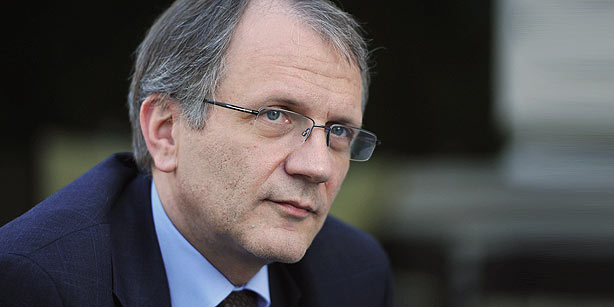
From Gábor Iklódy, atlantic-community.org: The creation of an "Emerging Security Challenges Division" (ESCD) by Secretary General Anders Fogh Rasmussen is not just an internal exercise, but also a strong political message. For the first time, NATO is systematically bringing together work on the areas that will increasingly affect the security of the Allies on both sides of the Atlantic: terrorism, cyber attacks, threats to energy supply, and the proliferation of weapons of mass destruction.
At first glance it may appear as if these challenges have little in common. However, a closer look reveals why they belong together conceptually. These challenges not only share certain common characteristics, but addressing them also requires NATO to change the way it thinks about Alliance solidarity and how it interacts with the broader international community, notably with civilian actors and the private sector.
The first common characteristic of these challenges is that they do not necessarily affect all Allies in the same way. A terrorist attack on a single Ally may generate collective concern, yet it may not automatically be regarded as an attack against the Alliance as a whole. The same holds true for a cyber attack on the banking system or an attack on the energy supply of an individual Ally. The decision about if and how to respond lies first and foremost with the country that has been hit. . . .
A second common characteristic of the new challenges is the fact that they do not necessarily require a military response. A well-orchestrated cyber attack can paralyse a country in ways that in the past could only have been achieved by a foreign invasion; yet if the attackers were an NGO, for example, NATO would hardly be able to threaten military retaliation. . . .
This leads to the third common characteristic of the new challenges: since they are both foreign and domestic, as well as military and economic, they require a holistic approach. In concrete terms, they require NATO to build structured relations with a range of civilian actors. . . .
NATO must develop a culture of political discussion which is not confined to issues that directly involve NATO militarily, but which also includes issues that may have "only" political relevance. As long as every debate in NATO is viewed as preparing military operations, a forward-looking, enlightened debate about emerging 21st century challenges will remain elusive. The Emerging Security Challenges Division will play its part in contributing to such a new culture of debate. Its Strategic Analysis Capability will scan the strategic horizon for challenges that may affect Allied security. This will help stimulate the debate among Allies and reinforce NATO’s unique value as a key forum for security consultation between Europe and North America, the world’s strongest community of like-minded nations.
Ambassador Gábor Iklódy is NATO’s Assistant Secretary General for Emerging Security Challenges. This article was written for NATO Review. (photo: Zaman)
Image: zaman%207%2026%2011%20Gabor-Iklody.jpg
